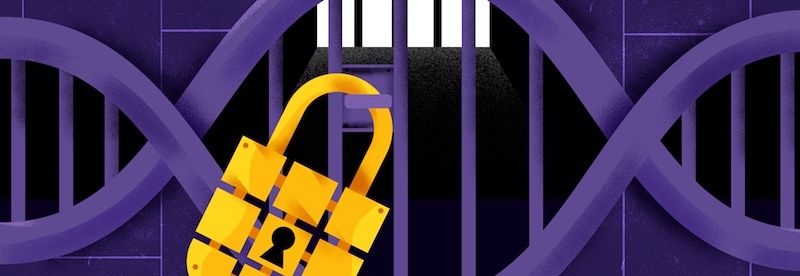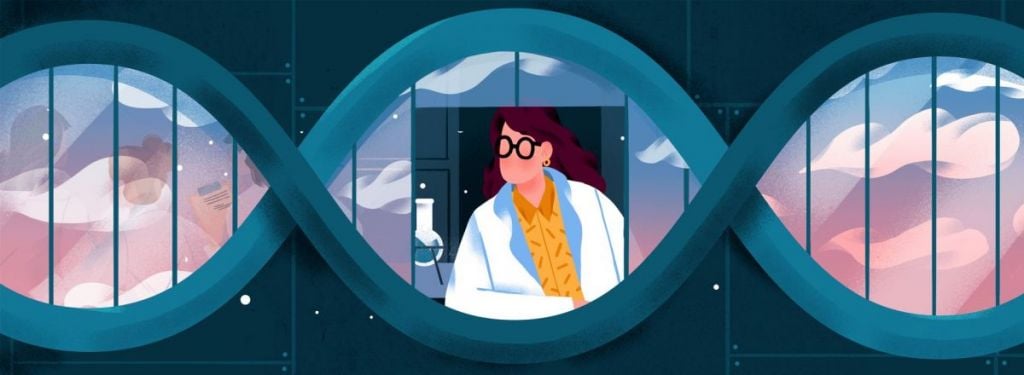In recent years, companies offering direct-to-consumer genomics tests have started switching the business model and venturing into drug development. Amidst criticism on data protection and lack of transparency, personal genomics companies are leveraging their unique position to generate genomics data to strike lucrative deals with pharma companies.
Thanks to cheaper data acquisition and convenient analysis, more and more companies are offering a broad range of genomics services directly to consumers. These can assess whether an individual is carrying a genetic mutation that will make them more susceptible to a certain disease, predict how they will respond to certain drugs, or provide information on their genetic ancestry.
These services are subject to controversy, especially regarding ethical and legal perspectives. For example, low transparency on how data can be reused and limited proof that data processing is compliant with European data protection law, since most of the stakeholders are based in the United States. In some countries, providing genomics services directly to individuals is simply forbidden. French law, for example, establishes that studying someone’s genetics can only be done for medical or research purposes.
Surprisingly, personal genomics companies managed to set up large marketing initiatives in France and other countries with similar laws, including ‘influencers’ ordering tests and presenting their results on YouTube, despite the fact that selling such genomic services is forbidden.
These companies also previously faced a huge setback in the US. In 2008, California health regulators asked to prove a physician was involved in the ordering of each test (which was obviously not the case) and requested these companies to fulfill clinical laboratory licensing requirements.
In 2013, the US FDA forbade these companies to give patients health information based on genomics tests. Later, in 2017, the FDA approved some of these tests for clinical purposes, but only for a limited number of diseases and on a case by case basis.
In order to address concerns regarding data safety, some companies have started using blockchain technology to facilitate and secure genomic data exchanges between individuals and researchers. But another concern is that the strategy of companies providing direct-to-consumer tests is to keep prices as low as possible. For example, 23andme offered health reports for $999 back in 2007, whereas the price went down to $99 in 2013.
The pricing of these services is usually really low compared to the costs of carrying state of the art whole-genome analysis. In some cases, this may result from using less sophisticated techniques that only look at a series of specific genes. But in many cases, the prices are this low because of a business model focusing on reusing data.

Raw data acquired from and analyzed with direct-to-customer tests is of high interest and value for the scientific community and the pharmaceutical industry. In particular in the field of personalized medicine, where it can be used to identify new drug targets or to screen patients for their eligibility into clinical trials.
Personal genomics companies forecasted that genetic and genomic data would be of interest to companies developing drugs at an early stage of their development. They stored years of data from their customers after securing their consent to permit easy data reuse.
Taking it one step further, these companies started to prospectively generate data for specific purposes. For example, 23andme gave free kits to patients with neurodegenerative disease to generate a catalog of the genomic data of thousands of patients with Parkinson’s disease in partnership with Genentech. They achieved this in record time compared to usual prospective biobanking studies requiring regulatory approval.
Some companies are proposing a new business model where they put customers with a specific profile in a waiting list until a pharma or biotech company orders their genomic sequencing. Under this model, customers get their genome sequenced (almost) for free and the company that ordered the database is able to do research on this data without a complicated recruitment process.
In Europe, personal genomics companies such as the Italian Dante Labs are offering additional genomics reports focused on specific conditions, sometimes offering discounts for a certain disease. Earlier this year, Dante Labs partnered with BC Platforms, a world leader in genomic data management and analysis, with the goal of building Europe’s largest private genomics laboratory.

Companies offering direct-to-consumer genomics tests are in a good position to become a staple in pharmaceutical research and development. The alternative to their extensive databases is to run expensive studies that often recruit small numbers of people. Furthermore, if the study has been funded by an industrial partner, the reusability of the data would be often limited due to intellectual property limitations. Governments all over the world are proposing large scale plans to generate databases such as the French Plan for Genomic Medicine 2025, the UK’s 100,000 Genomes Project, or Finland’s FinnGen. However, it takes time to generate sufficient data from these projects to generate partnerships.
A good example of their unique position to support pharmaceutical research is their involvement in the current Covid-19 pandemic. Both 23andme and Dante Labs have announced projects that aim to mine genomics data to identify genetic differences that may explain why some infected patients wind up on ventilators while others don’t even get a cough. This data will no doubt be valuable for developing new drugs with or without pharmaceutical partners.
As a result, companies that used to provide direct-to-consumer genetic tests are switching their business model towards that of a biotech company. Through partnerships and licensing deals, these companies are able to capture a much greater portion of the economic value its genetic databases could create over time. Indeed, they could at some point have licenses on marketed drugs that could be worth billions.
One of the most known partnerships in the field is the deal between GSK and 23andMe in 2018 to leverage genetic insights to identify drug targets and speed up clinical studies, which was widely criticized in the media. A more recent example is the partnership between Spanish pharma company Almirall and 23andme in mid January, giving Almirall the license rights to develop an antibody treatment for dermatology conditions. This made it clear that the personal genomics company is moving forward on patents covering not just genome sequencing, but also therapeutic products.
Thanks to this strategy, 23andme is leveraging data as a valuable asset. In the future, the company is likely expected to increase its leverage in the personalized medicine field using artificial intelligence and advanced analytics technologies.
Nonetheless, personal genomics companies should remain extremely vigilant in order to ensure the sustainability of their activities. They should have full transparency on how data is reused and set up partnerships that ensure the protection and awareness of patients whose data is being used. One of the issues in this regard is that the regulatory framework for direct-to-consumer genetic testing is not fully clear in many countries, and should be reviewed in order to protect the consumers.





